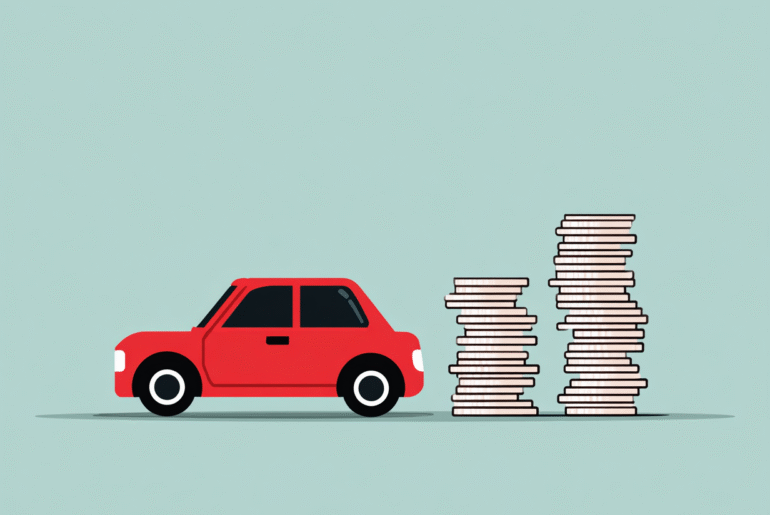This article may contain references to products or services from one or more of our advertisers or partners. We may receive compensation when you click on links to those products or services. Nonetheless, our opinions are our own.
The information presented in this article is accurate to the best of our knowledge at the time of publication. However, information is subject to change, and no guarantees are made about the continued accuracy or completeness of this content after its publication date.
If you have ever financed a car through a Personal Contract Purchase (PCP) agreement, you might have believed the deal you signed was straightforward and fair. However, a growing number of drivers across the UK are now discovering that their finance agreements may have been mis-sold. As a result, many are now eligible for a PCP refund.
This article will guide you through the essentials of PCP claims, how to check for eligibility, and what to look for when selecting the best PCP claims company to help recover your money. With agreements made between 2007 and 2021 now under scrutiny, there is no better time to revisit your paperwork and protect your finances.
Understanding PCP Agreements
A Personal Contract Purchase agreement is a popular form of car finance. It typically involves an initial deposit followed by monthly payments. At the end of the contract term, drivers have the option to either return the car, pay a final balloon payment to own it, or trade it in for a new model under another agreement.
While this structure appears to offer flexibility and control, not all consumers were given full and fair information at the point of sale. In many cases, the true costs and commission arrangements were not clearly explained, leaving some drivers unknowingly overpaying for their vehicles.
Why Are PCP Refunds Being Issued?
Between 2007 and 2021, a significant number of consumers entered into PCP deals without being told the full story. These are some of the most common problems:
- Hidden commission structures: Many car finance providers paid commission to dealers based on the interest rate agreed. The higher the rate, the higher the commission. This was often not disclosed to the customer.
- Lack of clear explanation: Customers were not always given sufficient information about the total cost, balloon payments, or the consequences of different end-of-term options.
- Pressure selling tactics: Some individuals were pushed into quick decisions, without being shown alternative finance options or given the opportunity to fully understand the deal.
As a result, thousands of drivers have started investigating their options and pursuing PCP refunds. If your agreement was not properly explained, you may have a valid claim.
Am I Eligible to Claim a PCP Refund?
You could be eligible for compensation if:
- Your PCP agreement was signed between 2007 and 2021
- You were not told about the commission arrangement between the broker and lender
- You did not understand the breakdown of your monthly payments or interest
- You felt pressured to agree quickly without time to compare options
- You were misled about what would happen at the end of the term
Even if your finance contract has already ended, you might still have grounds to make a PCP refund claim. The key is whether the information provided at the point of sale was clear, honest, and complete.
Voted "Best Overall Budgeting App" by Forbes and WSJ
Monarch Money helps you budget, track spending, set goals, and plan your financial future—all in one app.
Get 50% OFF your first year with code MONARCHVIP
How the PCP Claims Process Works
The good news is that pursuing a PCP refund does not have to be complicated. The process typically involves the following steps:
1. Review Your Documents
Start by gathering your original car finance paperwork. Look for any reference to commissions, interest rates, or repayment structures. This will help you understand what was agreed and what may have been left out.
2. Assess the Circumstances of the Sale
Think back to how the deal was presented. Were you given time to consider it? Were all the terms fully explained? Did you know that the dealer might earn more commission if you paid a higher rate of interest?
3. Submit a Claim
You can submit a complaint directly to the finance provider or work with a specialist. Many consumers choose the latter to ensure the process is handled correctly and professionally.
4. Receive a Decision
If the claim is upheld, you may receive a refund, interest adjustment, or compensation. This outcome depends on the specifics of your agreement and how it was presented.
How to Choose the Best PCP Claims Company
If you want expert help to make your claim, selecting the best PCP claims company is essential. A good company will handle the legal and administrative aspects for you and improve your chances of success.
Here are some factors to consider:
- Experience: Choose a company with a strong track record in handling car finance claims.
- Transparency: Make sure they explain the process clearly and do not ask for upfront fees.
- No win, no fee: Many reputable firms only charge if your claim is successful.
- Customer service: Clear communication and regular updates are signs of a reliable provider.
Choosing the right support can make the difference between a frustrating process and a smooth, successful outcome.
Protect Yourself from Future Finance Pitfalls
Regardless of whether you are currently claiming a PCP refund, it is a good idea to stay informed. The following tips can help you make smarter decisions in future finance agreements:
- Always read the terms of any contract in full before signing
- Ask for written confirmation of any commission or broker incentives
- Compare deals from multiple providers rather than accepting the first offer
- Keep a record of all paperwork and emails related to the purchase
Understanding your rights is key to protecting your wallet and avoiding costly surprises down the line.
Conclusion: Know Your Rights and Take Action
The increasing number of PCP claims across the UK shows how many drivers may have unknowingly signed unfair finance agreements. If you financed a car between 2007 and 2021, now is the time to check whether you were misled or misinformed.
Whether you decide to handle it yourself or get support from the best PCP claims company, the most important thing is to take that first step. Recovering your money is not just about righting a wrong. It is about reinforcing transparency and ensuring fair treatment in the future.
If something about your deal never felt quite right, trust that instinct. You might be owed a PCP refund — and the sooner you act, the sooner you can start reclaiming what is yours.

Reviewed and edited by Albert Fang.
See a typo or want to suggest an edit/revision to the content? Use the contact us form to provide feedback.
At FangWallet, we value editorial integrity and open collaboration in curating quality content for readers to enjoy. Much appreciated for the assist.
Did you like our article and find it insightful? We encourage sharing the article link with family and friends to benefit as well - better yet, sharing on social media. Thank you for the support! 🍉
Article Title: PCP Claims 101: How to Recover Car Finance Costs and Protect Your Wallet
https://fangwallet.com/2025/09/13/pcp-claims-101-how-to-recover-car-finance-costs-and-protect-your-wallet/The FangWallet Promise
FangWallet is an editorially independent resource - founded on breaking down challenging financial concepts for anyone to understand since 2014. While we adhere to editorial integrity, note that this post may contain references to products from our partners.
The FangWallet promise is always to have your best interest in mind and be transparent and honest about the financial picture.
Become an Insider

Subscribe to get a free daily budget planner printable to help get your money on track!
Make passive money the right way. No spam.
Editorial Disclaimer: The editorial content on this page is not provided by any of the companies mentioned. The opinions expressed here are the author's alone.
The content of this website is for informational purposes only and does not represent investment advice, or an offer or solicitation to buy or sell any security, investment, or product. Investors are encouraged to do their own due diligence, and, if necessary, consult professional advising before making any investment decisions. Investing involves a high degree of risk, and financial losses may occur including the potential loss of principal.
Source Citation References:
+ Inspo
There are no additional citations or references to note for this article at this time.












































